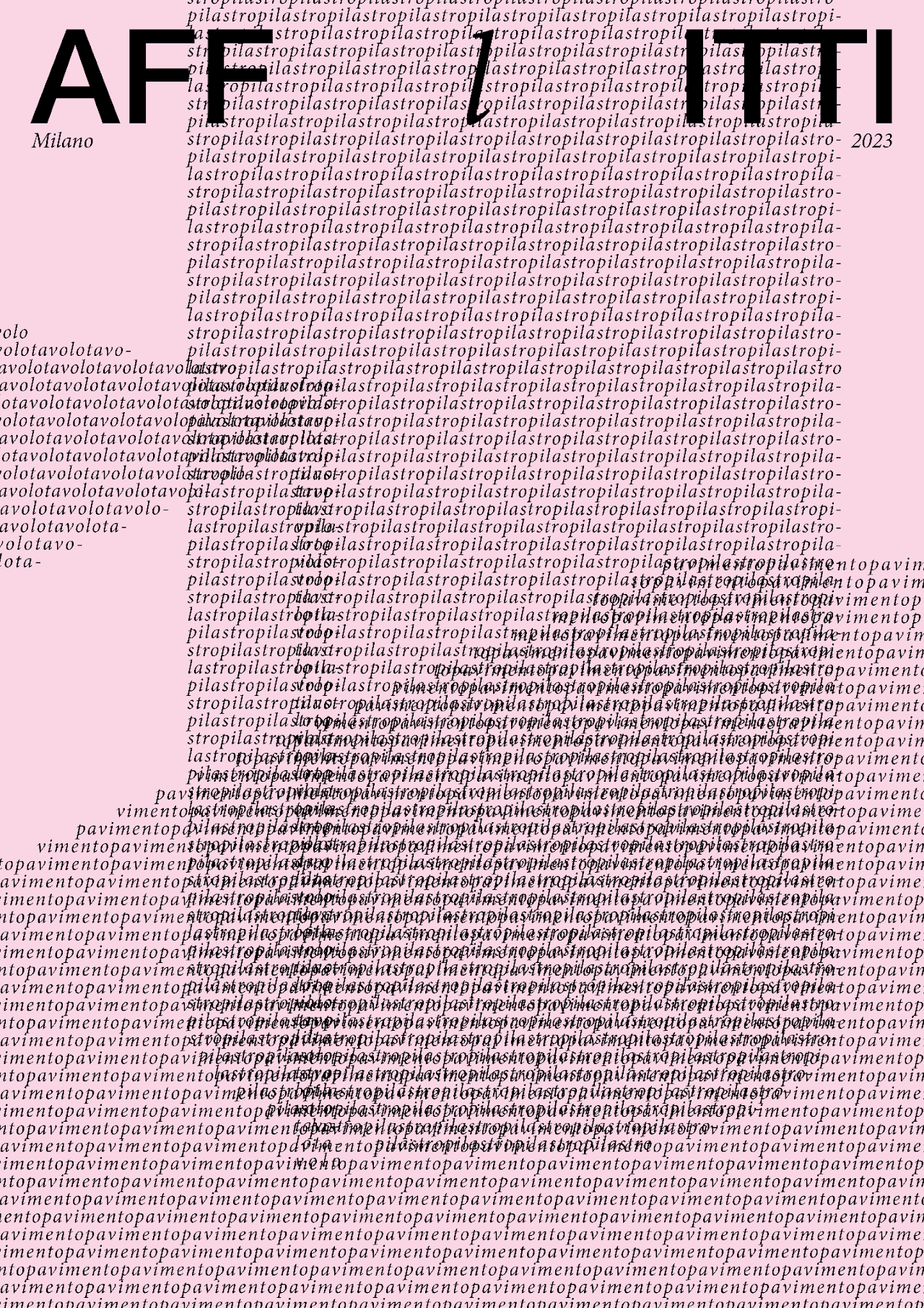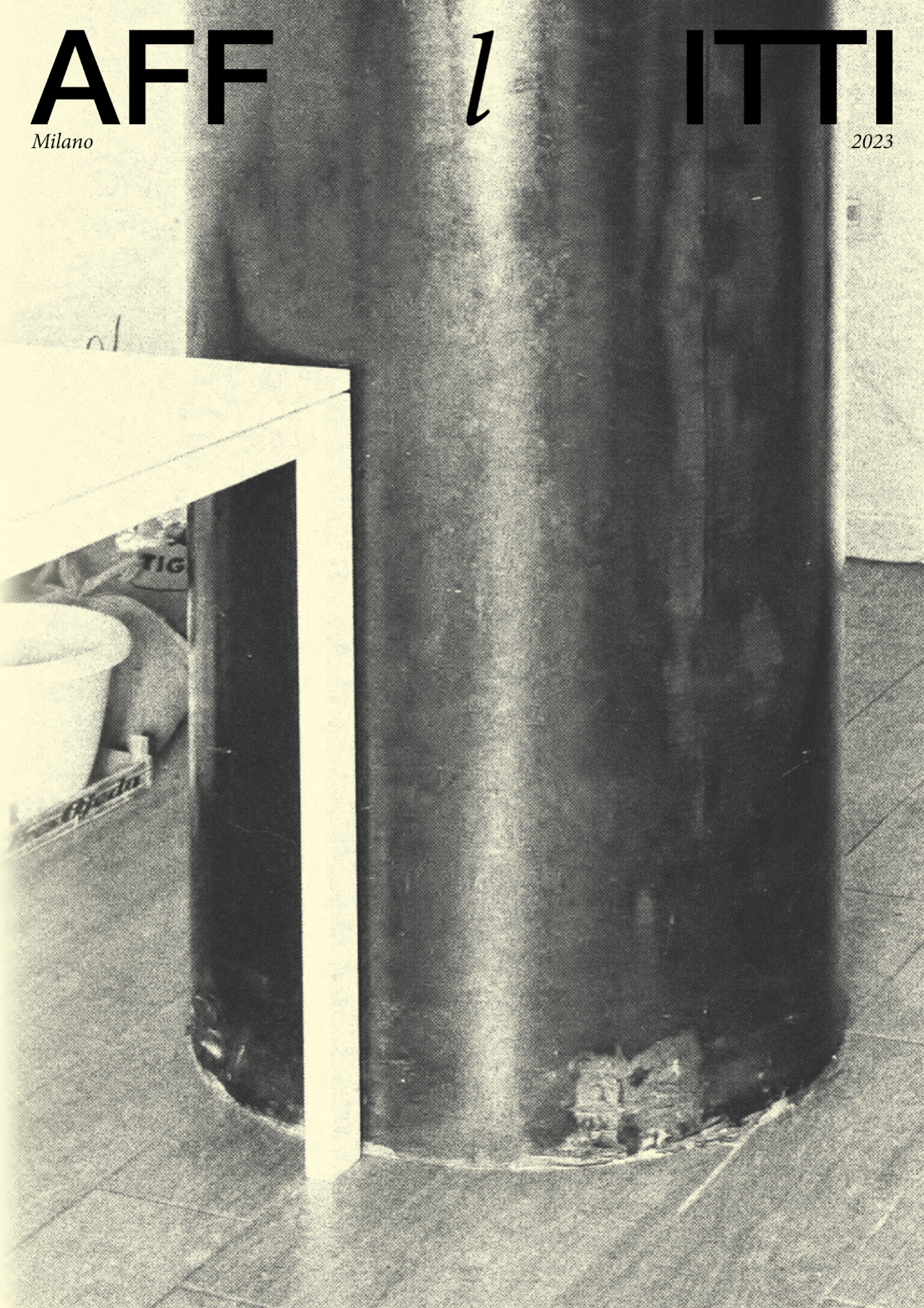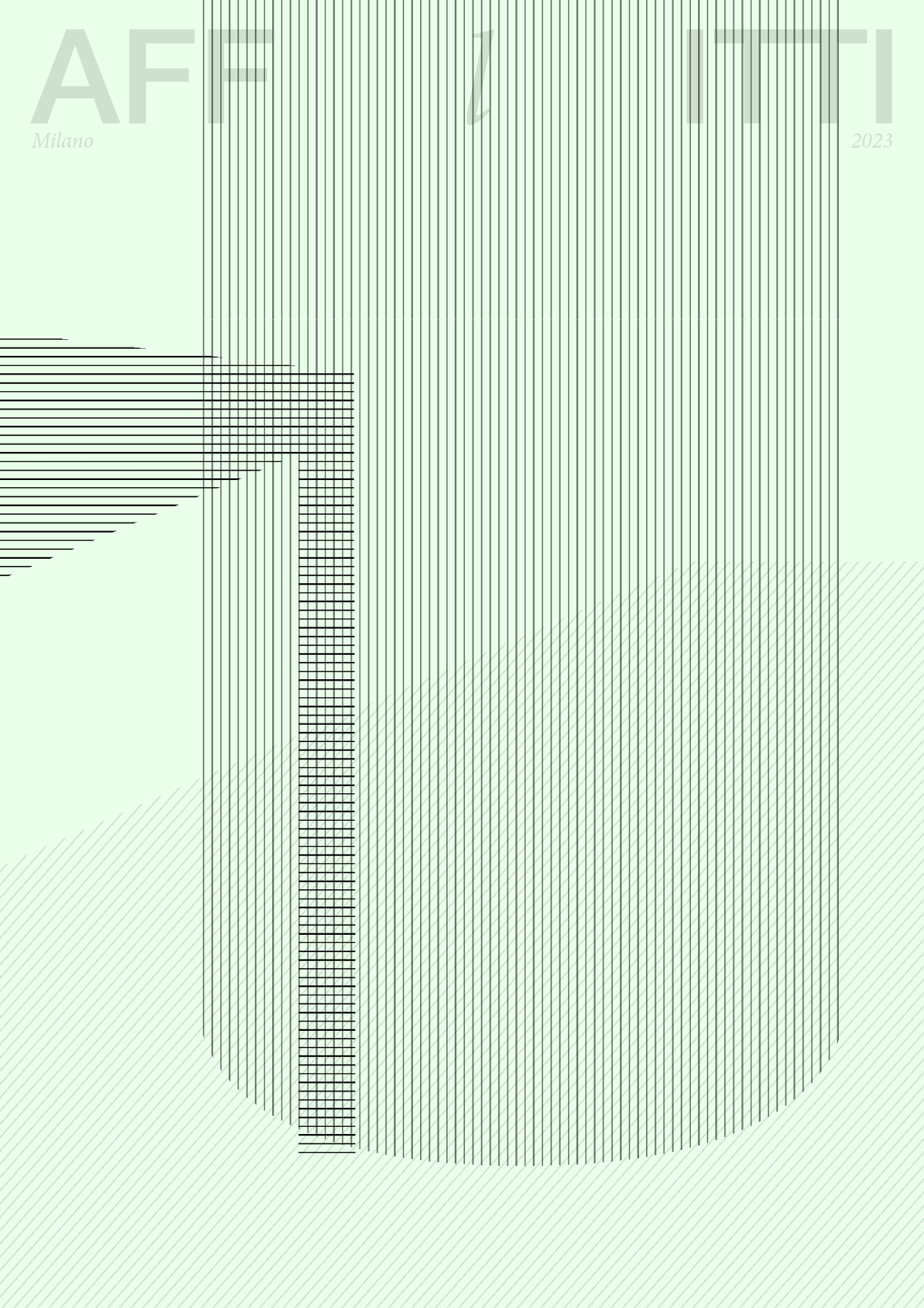Over to students
Caro Affitto, ti progetto!
Case Milanesissime
Caro Affitto, ti progetto!
Dear Rent, I redesign you!
Open Call by VuotoCollettivo.
Projects designed by Politecnico di Milano Design students, A.Y. 2024.
posters, games, fanzines, handbooks
In contemporary Milan, high rental prices have made it increasingly difficult, if not impossible, to find affordable housing for low and middle income families, students included. This issue affects the quality of living and the social fabric of the city.
We asked Design students in Politecnico di Milano to ‘redesign’ against the housing crisis and reimagine student housing in Milan.
Five selected projects.
Aff(l)itti is a 3 booklets fanzine. It is a tangible effort to document the current living conditions of offsite students in Milan.
Milanopoly is the Milanese adaptation of the world’s most iconic property trading game.
Can you afford to play?
How often have we been told to stop complaining because the rent is high everywhere?
Four posters to protest about students’ living conditions in Milan: our future is not a trend.
A handbook for a more active and direct solution to the housing crisis, offering a political and collective perspective for anyone who needs it.
A new supermarket concept designed for offsite students living in Milan.
Aff(l)itti
Milanopoly
Not a trend
Squatting Handbook
ESSEcorta
Aff(l)itti
Afflicted
Giulia Odero, Ilaria Pirro.
3 fanzines
In 2023, Milan was crowned the most expensive university city in Italy, with the average cost of a single room soaring to €628 per month. Thousands of out-of-town students scramble to secure housing, often teetering on the brink of precariousness. This unsustainable reality exists in a gray area largely ignored by public institutions.
But why should we accept this? Paying exorbitant prices for tiny, inadequate spaces takes a toll on both physical and mental well-being. Only by experiencing this firsthand can one truly understand the unsustainability of such living conditions. Is there a more effective way to highlight and communicate these pressing issues?
Aff(l)itti steps into six homes to tell six stories, employing three distinct expressive languages: typography, photography, and materiality. This project is a tangible response to the dire living conditions faced by out-of-town students in Milan. Through an artistic-critical lens, it offers a factual yet evocative narrative of this reality, aiming to amplify voices often left unheard. Published across three volumes, the work seeks to spark collective awareness and institutional action to address the needs of a generation that represents the future.
The first volume, Typographic Stories, presents firsthand testimonies, transforming their emotional weight into powerful typographic interpretations. The second, Visual Narratives, uses photography to document precarious living conditions and the routines of daily life. Lastly, Material Memories serves as an archive of tangible artifacts, preserved on paper to evoke sensory responses—exposing the neglect, bleakness, and resignation embedded in these spaces.
Aff(l)itti
Milanopoly
Not a trend
Squatting Handbook
ESSEcorta
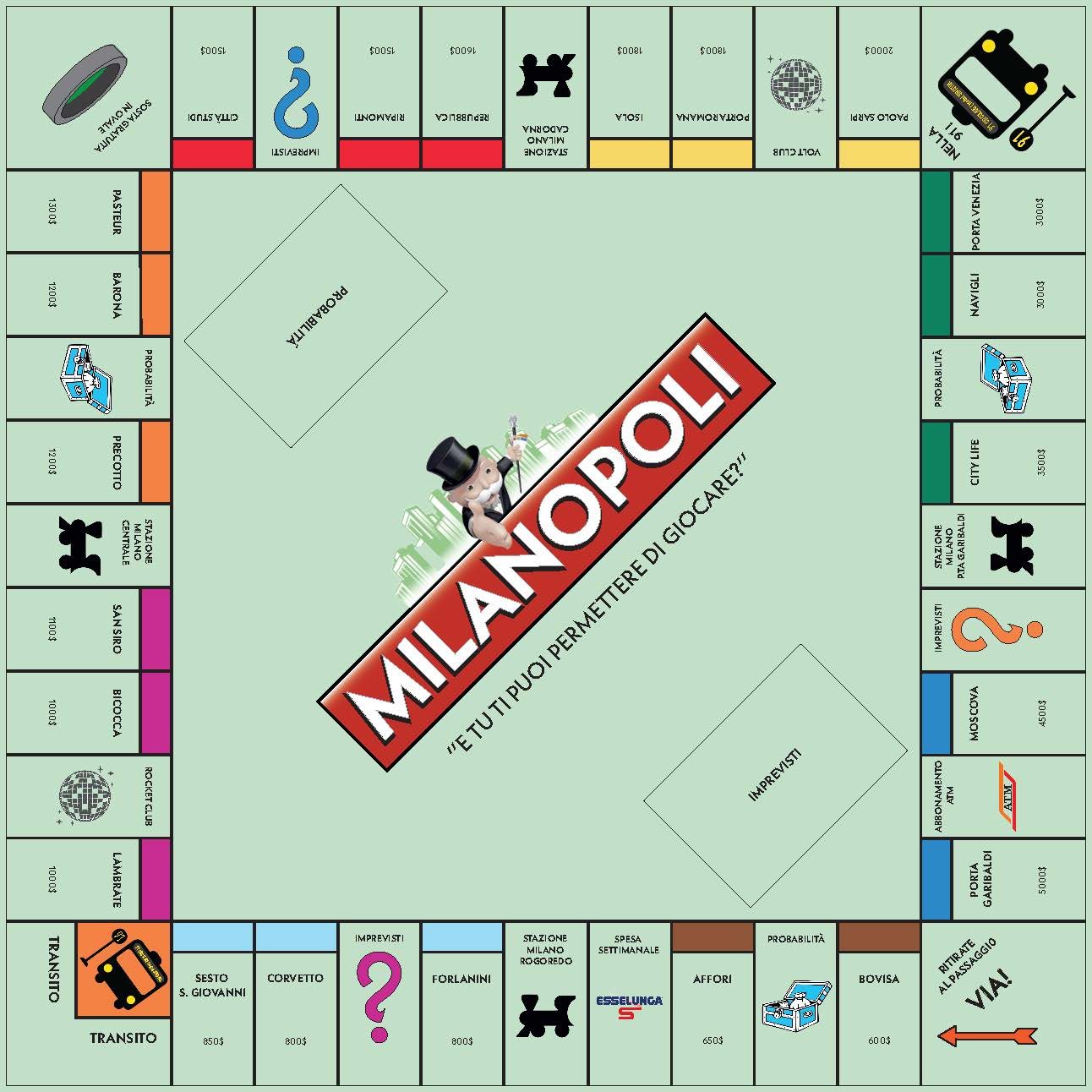
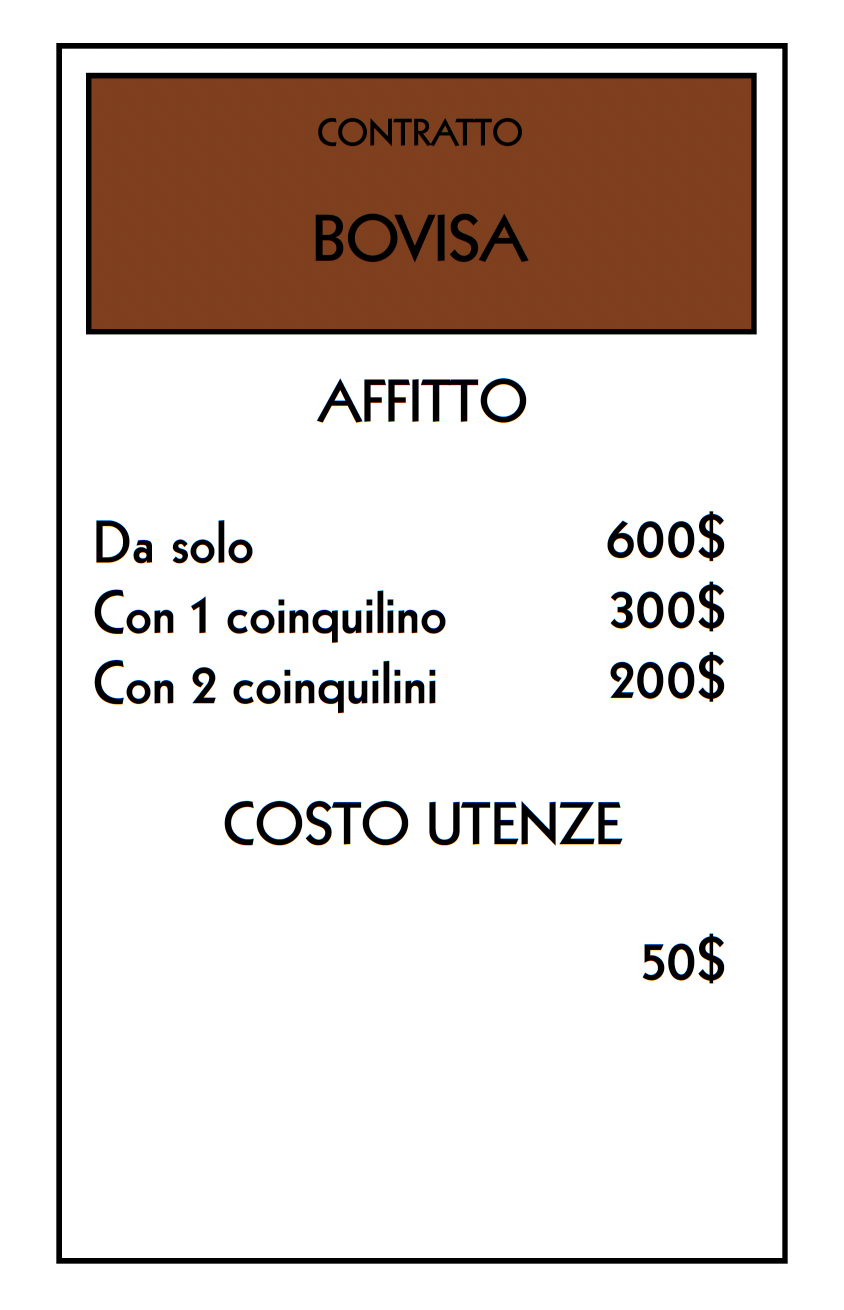
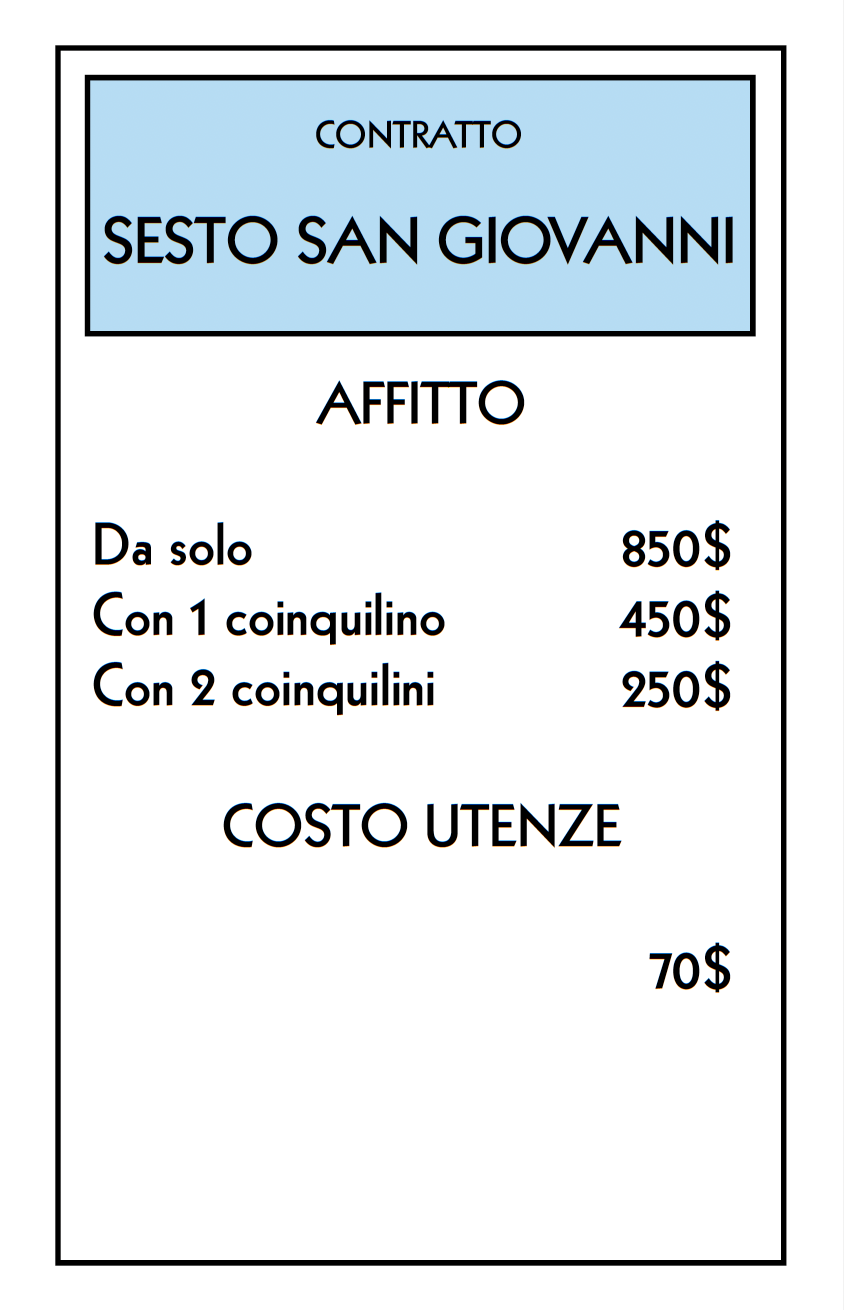
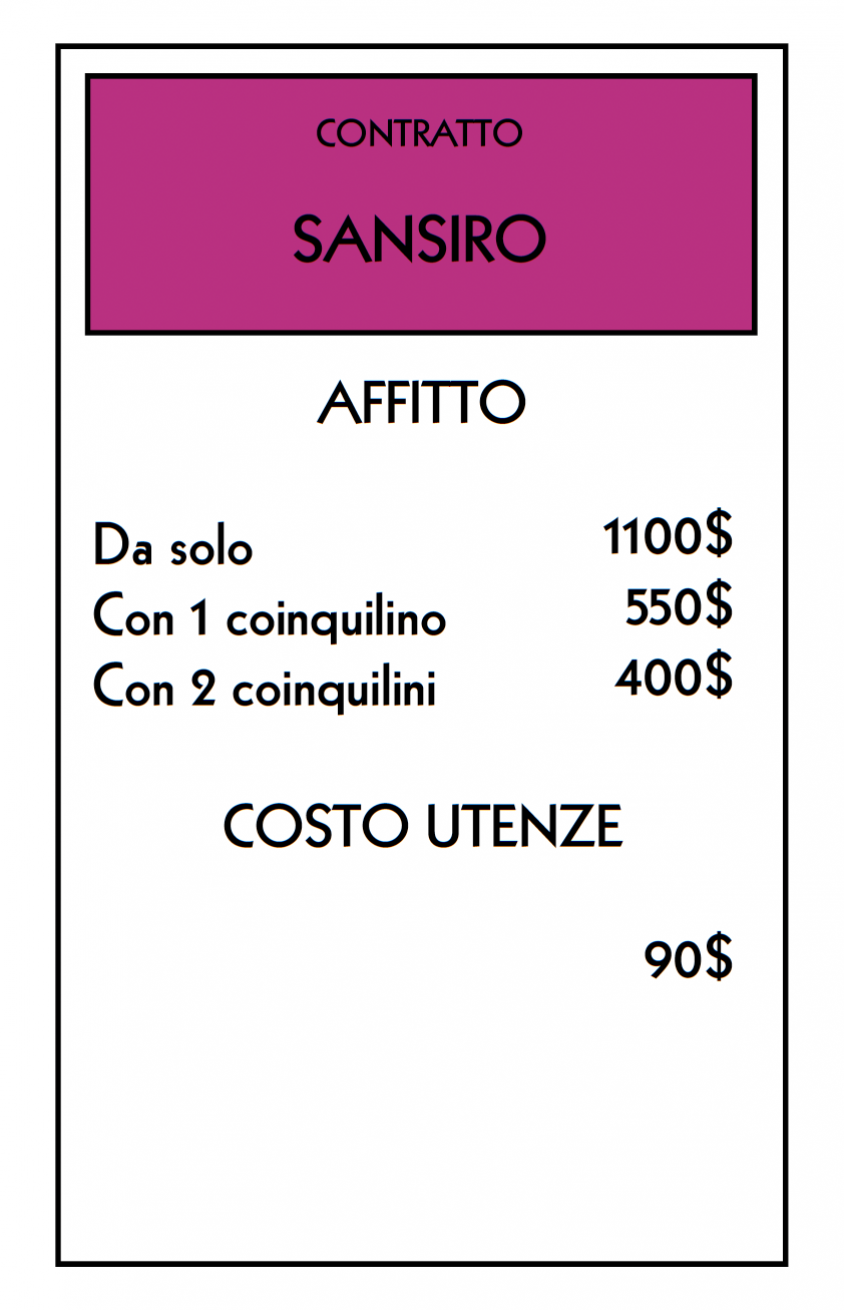
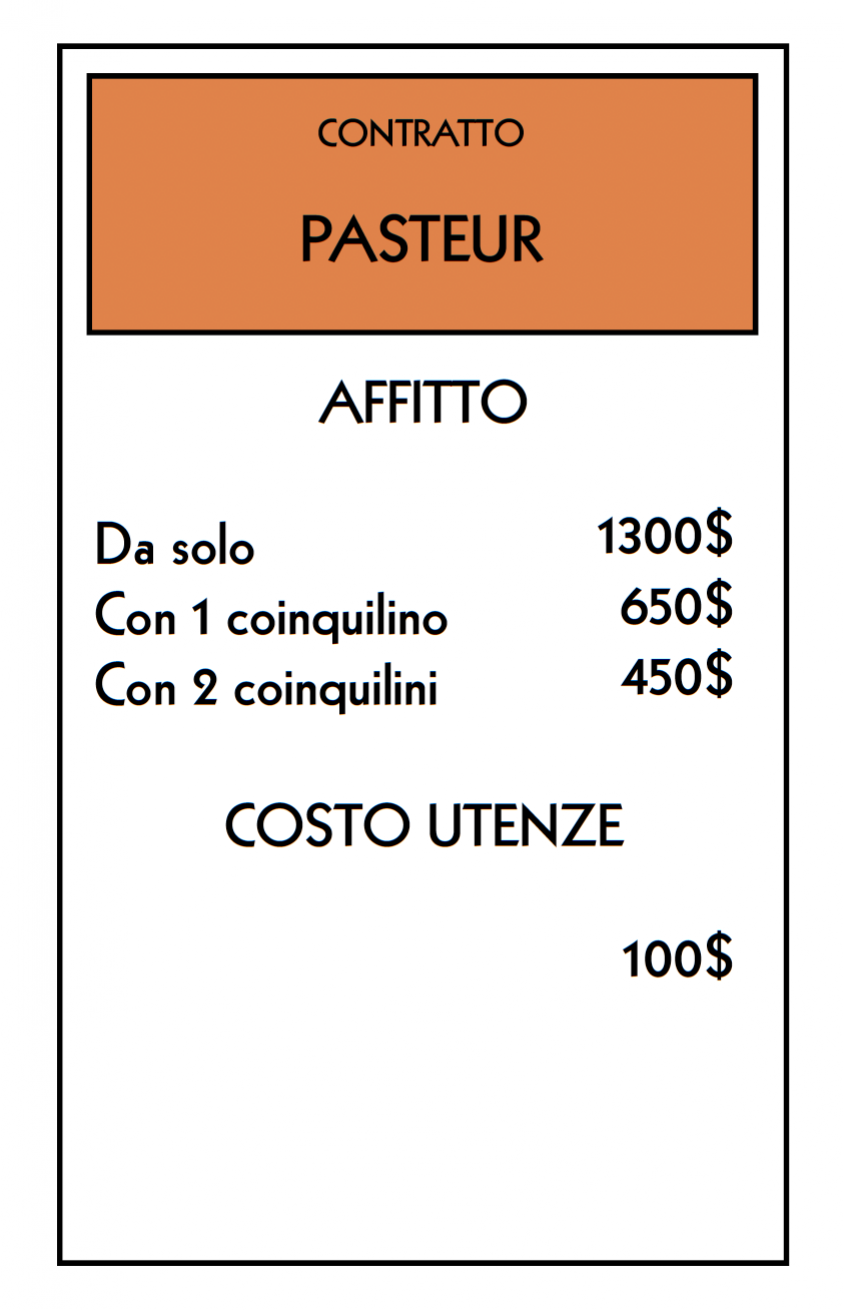
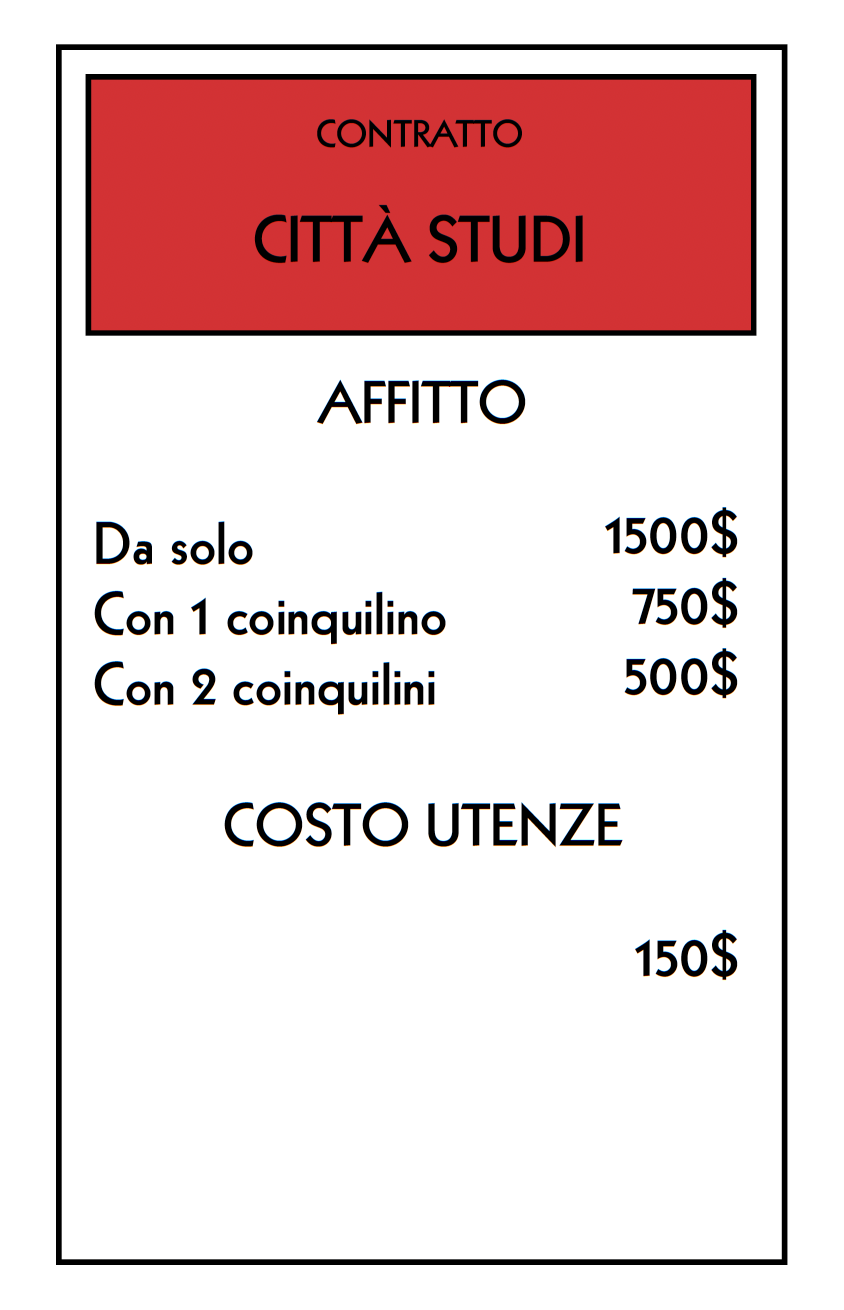
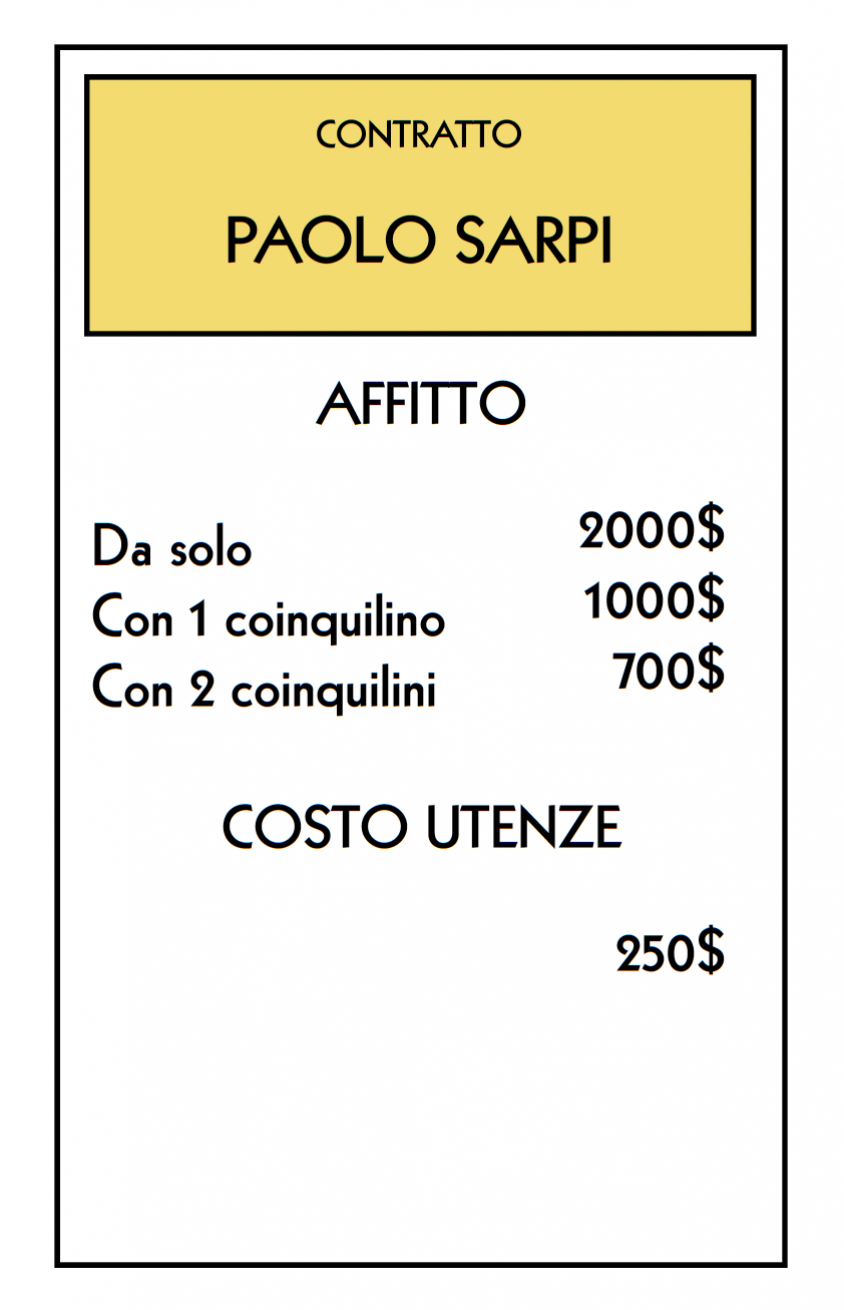
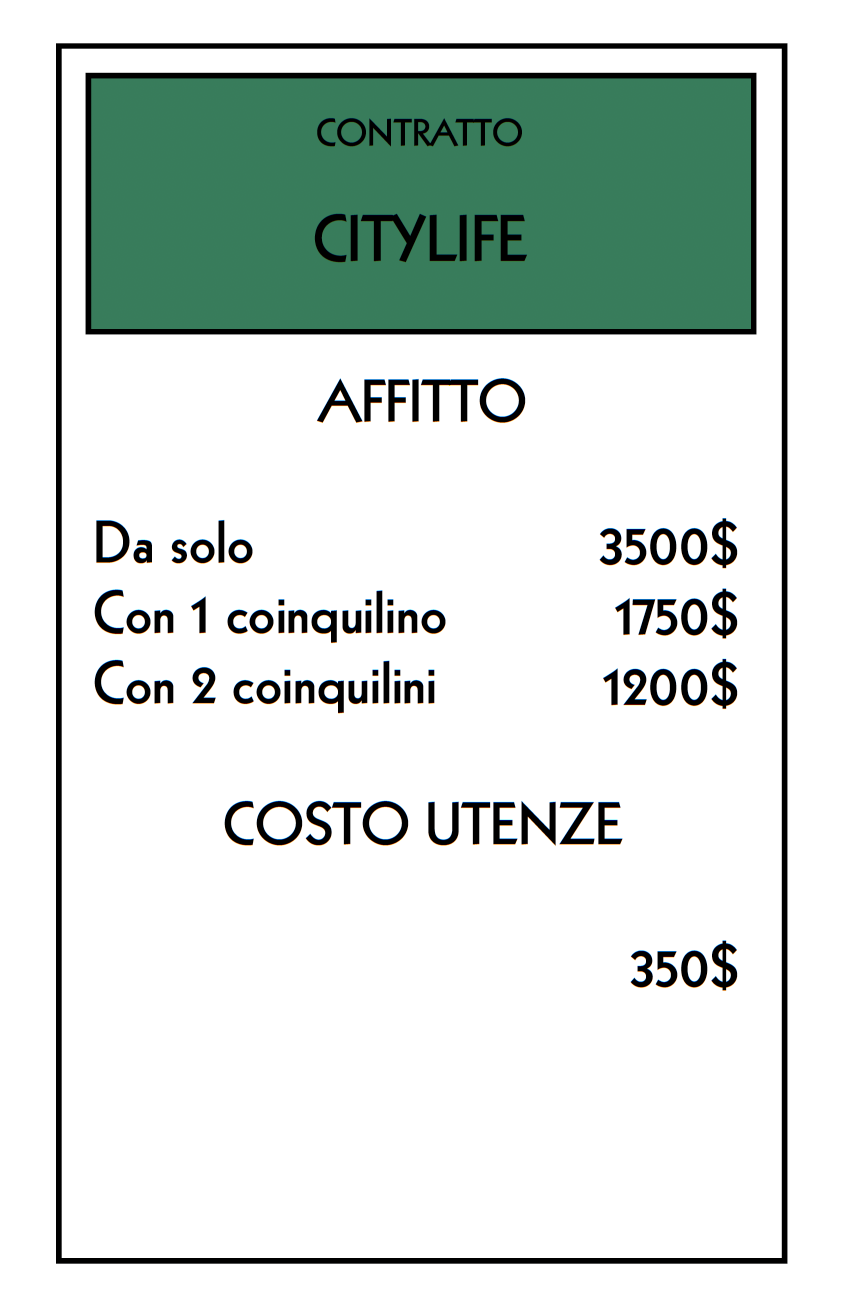
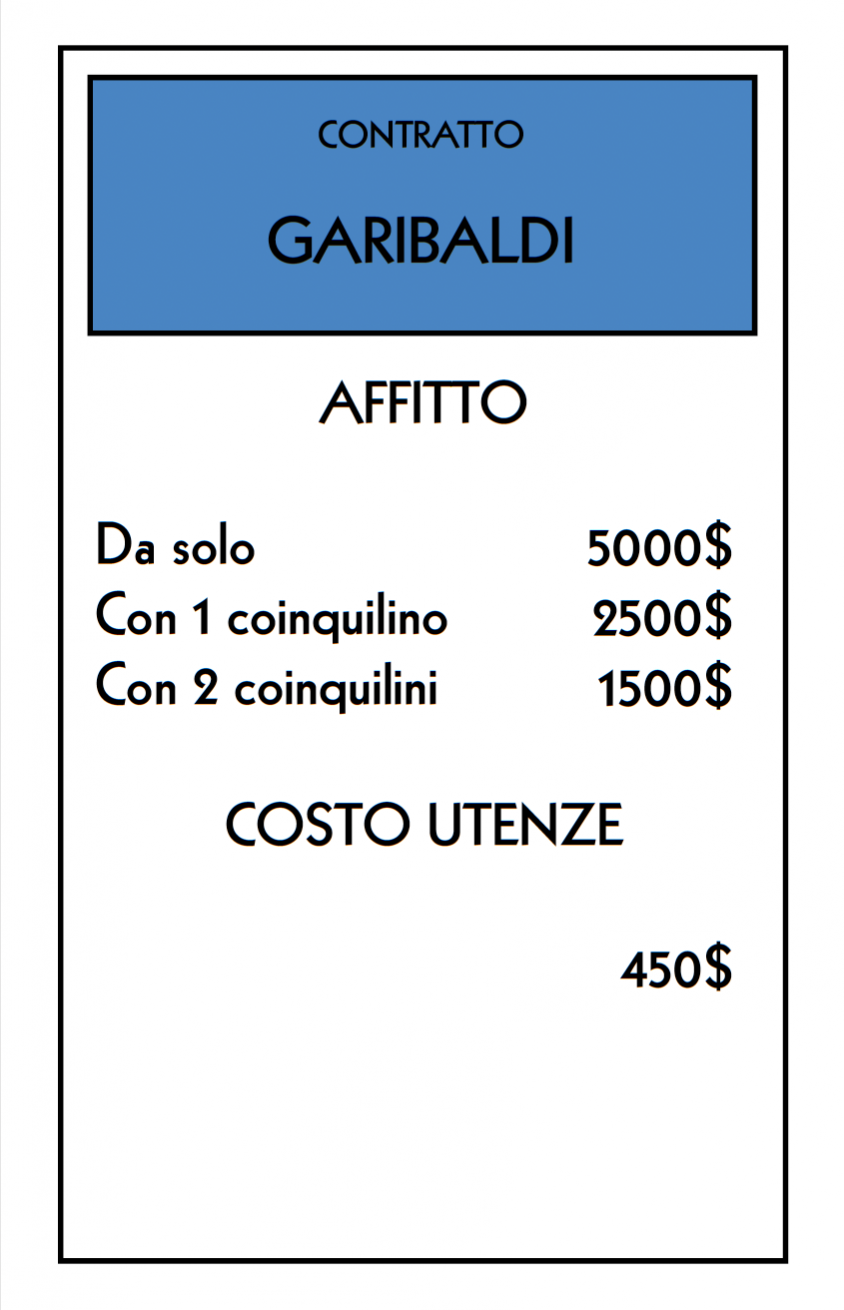
download the game
Milanopoli
Milanopoly
Greta Buzzi, Anna Meregalli.
monopoly game
Can you afford to play?
Milanopoli is a reimagining of the classic Monopoly game, infused with elements of Milanese reality to reflect the dynamics of the world’s most iconic property trading game. The game is filled with pop-culture references from Milan, some universally recognizable and others specifically resonating with the student community, particularly those in Bovisa.
The aim is to entertain with a customized version of Monopoly while making it so realistic that it becomes unplayable—just like the “game” of Milan’s rental market today. The slogan “Can you afford to play?” highlights the stark inequality in the ability to live—and therefore play—in Milan, an issue even more pronounced for students.
Aff(l)itti
Milanopoly
Not a trend
Squatting Handbook
ESSEcorta
Milano, perché va di Moda
Not a Trend
Bianca Traversa, Matteo Bricchi,
Simone Micozzi, Marco Inchingolo
4 posters, 1 shirt
How many times have we scrolled through ads promising ideal living conditions, only to find photos of homes offering nothing but squalor and decay? How often have we been told to make sacrifices, like those before us, to stop complaining because “rent is high everywhere”?
In these posters, the images are dramatic, and the titles and descriptions are almost ironic—reflecting the same stark contrast in how this increasingly distressing situation is managed. This crisis affects many university students who choose to study in this city, yet it is not taken as seriously as it should be. Many are forced to pursue their studies elsewhere, live in unacceptable conditions, or leave the city immediately after completing their education.
This project draws on real ads, articles, and social media posts to demonstrate that the struggles experienced by young people are either unnoticed or outright ignored by most. As young students and workers, we are left with no option but to protest—in all its forms—with the hope of raising awareness in the city about our right to study, work, and live in Milan. After all, our future is not a trend.
Aff(l)itti
Milanopoly
Not a trend
Squatting Handbook
ESSEcorta
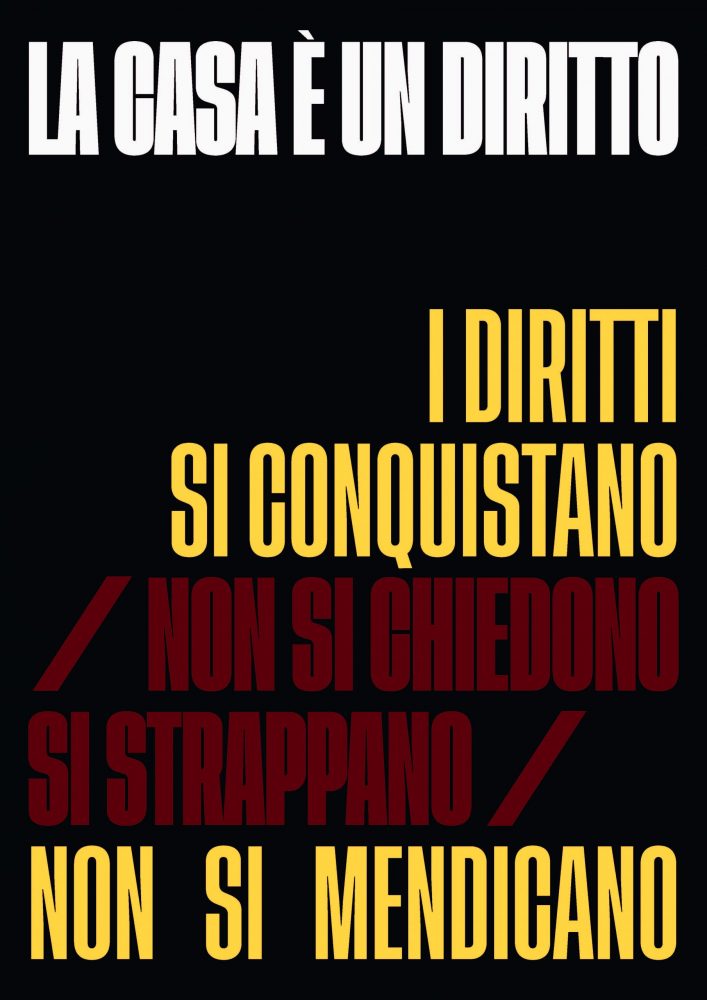
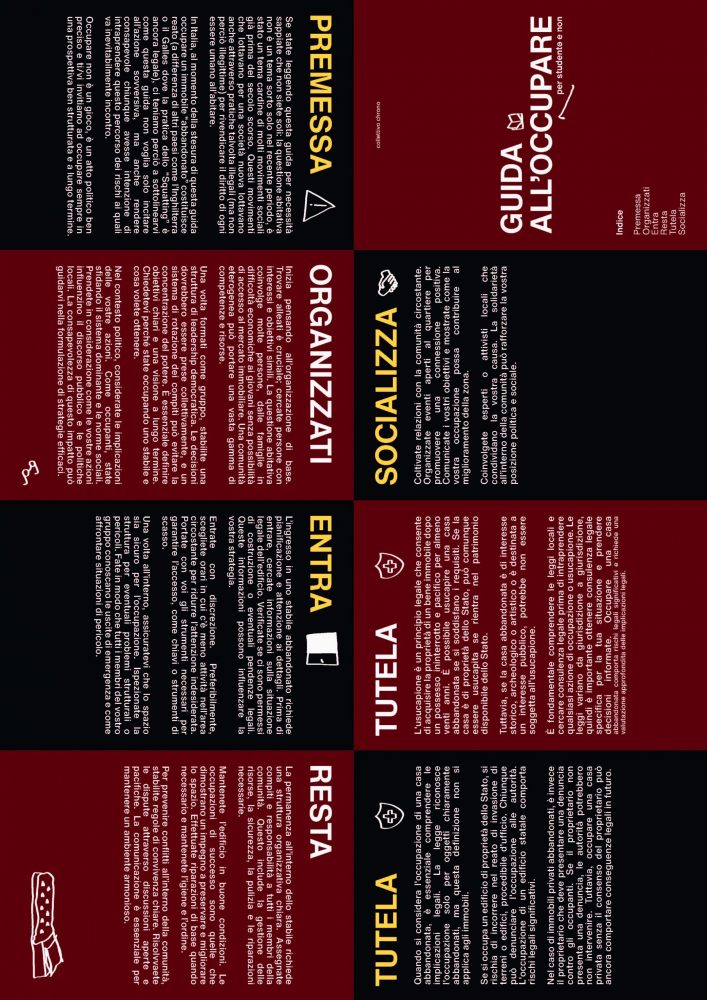
download the guide
Guida all'Occupare
Squatting Handbook
Mattia Paluello
guide
Finding solutions often means exploring new paths. Sometimes, however, it requires stepping outside the boundaries of legality, as in this case.
By thinking beyond ideologies that uncritically defend private property—preventing us from imagining a new future—the “Guide to Occupying” was created. This guide presents itself as a more active and direct solution to the housing crisis, offering a political and collective perspective for anyone in need.
Of course, this artifact should be understood within the limits of its original purpose and not as a definitive guide. Rather, it serves as a political process, inviting anyone with the appropriate skills to participate.

